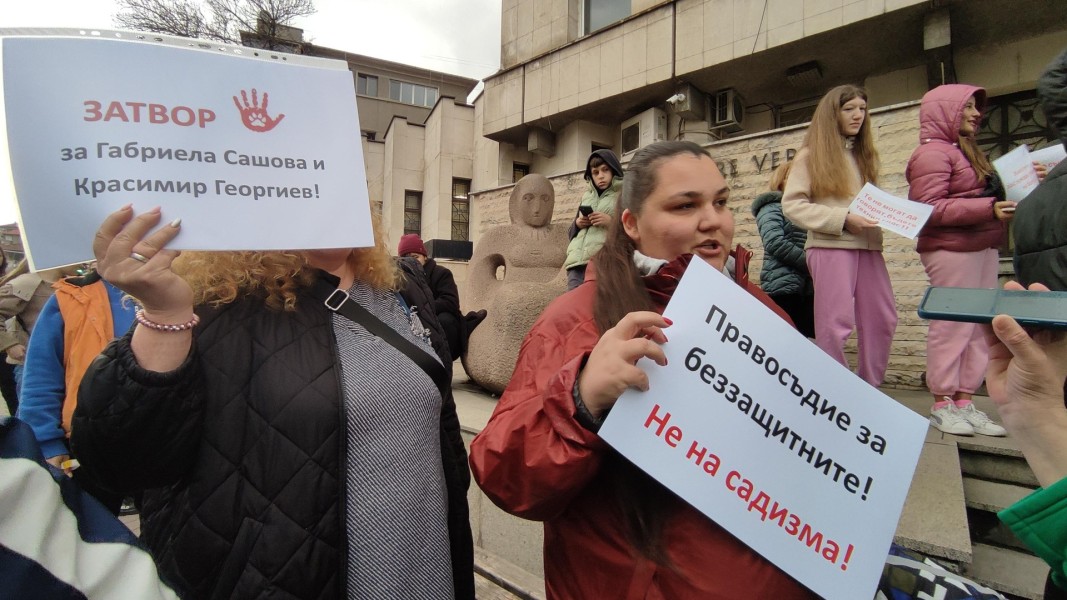Bulgarians have traditionally had a deep respect and gratitude for domestic animals. For generations, horses, oxen, donkeys and cows have been indispensable partners in agricultural life, faithfully assisting people in their daily work. While mechanisation and technological advances have made animals less central to modern farming, the bond between Bulgarians and their domestic animals remains strong. Even without referring to official statistics, everyday observation reveals that most Bulgarian households have a dog or a cat. It is also common for parents to ensure that their children grow up with pets, in the belief that it contributes positively to their moral upbringing and emotional development.
In this way, animals continue to be seen as beloved members of the family. As a result, any report of cruelty toward animals resonates deeply with the public, sparking both pain and outrage.
Amid growing concern, civil society is now calling for more effective law enforcement and immediate action to end violence against animals.


"Unfortunately, the law is not well defined and does not guarantee that those responsible for animal cruelty, as well as causing grievous bodily harm and death to a vertebrate animal, will receive a fair sentence. Everything now depends on the investigating authorities, on the basis of all the evidence that we have gathered in advance, even before the signal was given. And after the perpetrators were arrested, much more evidence was found. We hope that this will provide the best basis for obtaining the maximum sentences for those arrested. The problem is that the provisions in the code are not well formulated - a maximum of 5 years can be imposed as punishment for the two perpetrators".

Bulgaria is currently inundated with protests against unpunished crimes against animals. According to the KAZHI association, a mass protest will take place in Sofia on 12 and 13 April. The reason is that there are still numerous reports of animal abusers who have not received fair punishment. "Not only have they not been convicted, but many of them have not even been investigated by the authorities," says Petya Altimirska.

"In this particular case, we are dealing with several different criminal charges. Not only for mutilating a vertebrate animal, but also for money laundering, criminal association, distribution of pornographic content and so on. There is no precedent for this in Bulgaria.We hope the evidence is strong enough to set an important legal standard. That is why we are following this case very closely and our main appeal to the court, once the perpetrators have been charged, is that the trial should be open to the public. We want people in society to be able to see at first hand how the case is judged, how it is handled and how such perpetrators are punished.
Petya Altimirska's experience with KAZHI points to another important fact that our society should not ignore - behind every known case of brutal violence against children and adults, there is usually a history of violence against animals. Therefore, when people notice such acts of brutality or sadism against animals, they should never remain indifferent. They must report it to the public prosecutor and the Home Office, but they must also insist on a serious investigation into the case.
Unfortunately, at the moment neither the zoo police nor the Interior Ministry authorities have the resources or the competence to respond in time to the wave of reports of uninvestigated violence against animals - says Petya Altimirska, adding that her civic association receives dozens of reports about how some authorities are not doing their job.

"We respond to signals, but we only have the authority when it comes to specific crimes. In those cases, the Criminal Procedure Code applies. As a former member of the Zoological and Canine Police, I conducted numerous inspections where there was evidence that the police authorities had not responded correctly, but in my experience only one case turned out to be justified. All the others were due to exaggerated or unrealistic expectations on the part of the public.


'The dialogue between employers and trade unions has been restored. Consultations will begin tomorrow at the Ministry of Finance to iron out all the details. The state is committed to supporting every Bulgarian citizen.' This was written by GERB leader..
Bulgarian citizens traveled abroad 829,300 times in October, which is 15% more than in October 2024 , according to the National Statistical Institute. The most popular destinations were Turkey, Greece, Serbia, Romania, Germany, North Macedonia,..
The National Assembly has introduced a new requirement for state-owned enterprises to implement corruption risk management systems, which will also include appointing an integrity officer. The measure is recommended by the Organisation for Economic..

+359 2 9336 661
